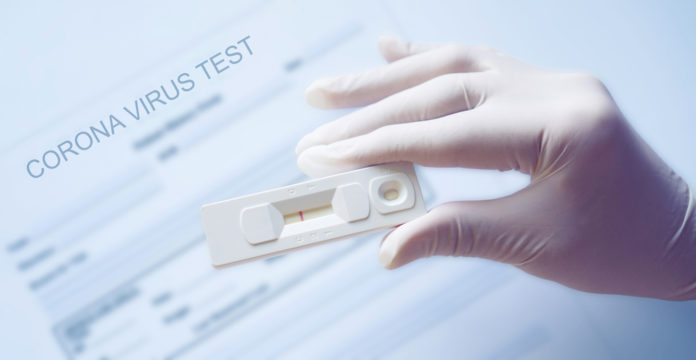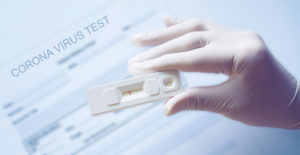
Democrats have urged the Biden administration to spend more on at-home COVID-19 testing to overcome supply constraints, claiming the public is missing out on a vital public health tool.
Antigen testing, unlike PCR tests, allows patients to test for COVID-19 at leisure without a doctor. The home tests should be used semi-regularly and before traveling to reduce the danger of unintentional illness spread.
However, their exorbitant cost ($20-$40 for two tests) and lack of availability have placed them out of reach for many.
The Potential of Home Testing
Biden stated earlier this month that insured Americans can get covered for their testing if they submit invoices to their insurers.
Schrier said this procedure was too demanding for many people. Other nations, including Germany, the U.K., and Singapore, made these tests inexpensive and accessible by ordering them in bulk and giving them away.
I joined recreation center staff at the Ryan Center today to distribute free at-home COVID-19 testing kits to city residents. Testing plays an important role in keeping our community safe and limiting community spread during the holidays. Thank you to all who made this possible! pic.twitter.com/UCWWVKQ7KY
— NYS Senator Samra Brouk (@SenatorBrouk) December 11, 2021
Schrier says a quick at-home test is the best way to spend government cash since you get answers quickly and act on them the same day.
Democrats propose a strategy reminiscent of former President Trump’s vaccine plan: buy in bulk from test makers and charge a lower price to the public.
The epidemic disrupted worldwide supply lines, affecting test kit supplies, including swabs and pipettes. Testing paused before the highly infectious delta strain took over, as the strain dominated worldwide circulation in the spring.
With the enactment of the American Rescue Plan Act in the spring, Congress budgeted $50 billion to increase COVID-19 lab testing, along with the production and operation of home test kits.
In October, the Biden administration also started spending $1 billion on fast at-home test kits, increasing monthly testing to 200 million by December. Rep. Bill Foster, an Illinois Democrat, said he won’t consider the work done until he sees home testing kits on supermarket shelves.
Trump’s Initial Tactic
To ensure future supply, the Trump administration placed big orders for several vaccinations in development well before they were shown to be successful, thus removing the financial risk from pharmaceutical firms.
This administration did not do the same for tests already in production, which would have encouraged test producers to provide a variety of COVID-19 tests for home and lab use.
Foster said the state must exercise caution when making experimental investments in a wide range of items, knowing that not all will be beneficial. He supports it as a whole and thinks the speedy at-home testing is an excellent illustration of how federal money should be used.
Foster also expressed displeasure with the FDA’s unhurried clearance. The FDA criticized a regulatory procedure that is overly cumbersome and opaque for manufacturers, which analyzes clinical data for all tests in development before they are approved for sale.
To speed up distribution to retailers, the FDA examines home testing in the same manner.
Everyone should be able to get COVID TESTING KITS at home without paying high prices for them. This is, IMO,
another ripoff during a Pandemic crisis. pic.twitter.com/y33WDSTjU3— BOOKS OUR PASSION (@rubydiana) December 7, 2021
U.S. agencies say the process is simple, as long as the scientific research backing the product is sound.
In October, the Biden administration formed an Independent Test Assessment Program (ITAP). It was developed at the National Institutes of Health to analyze over-the-counter tests and cooperate with firms to generate data needed for test licensure.
The FDA has approved 16 home tests and will continue to endorse further tests, based on mass manufacturing capabilities.
















